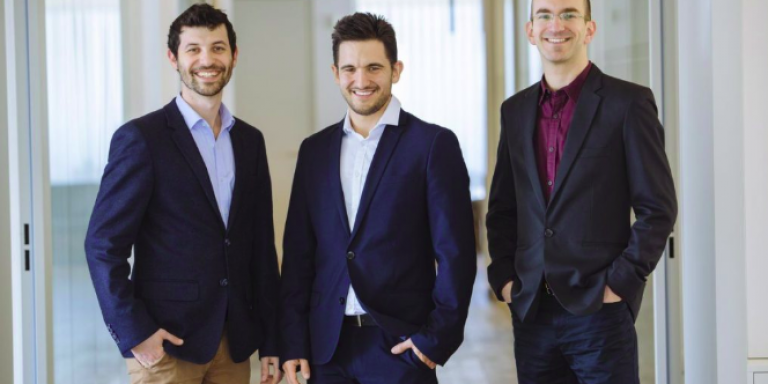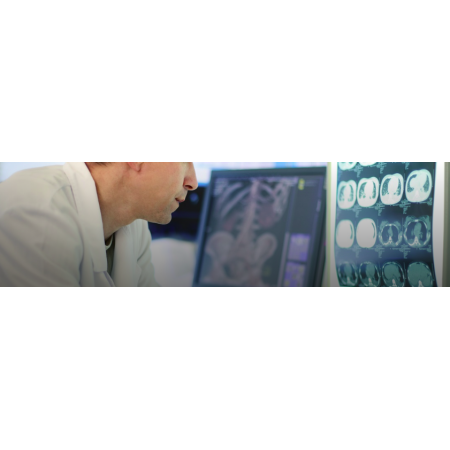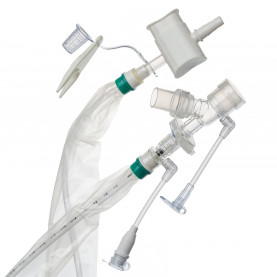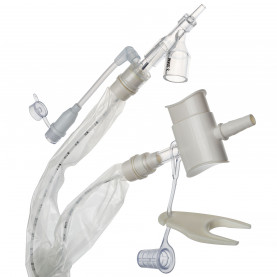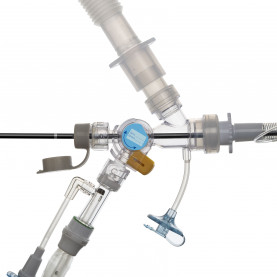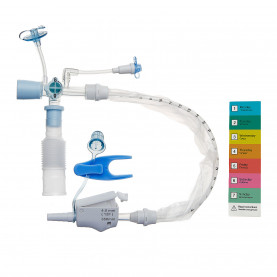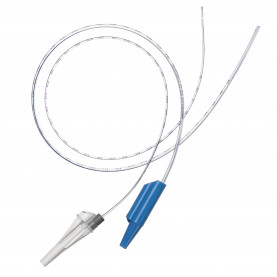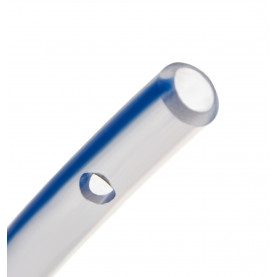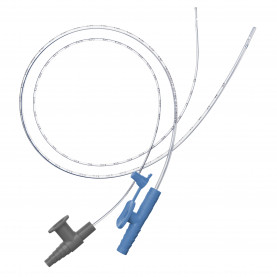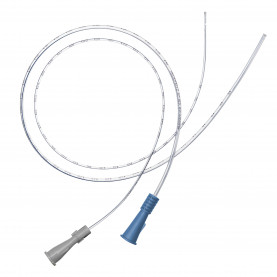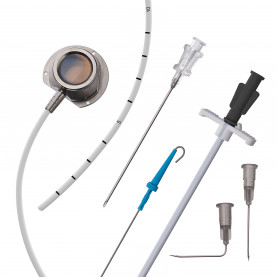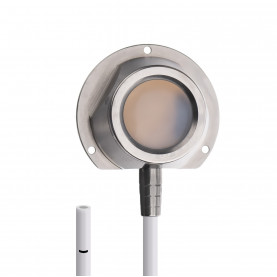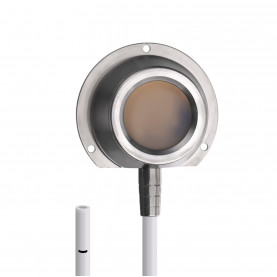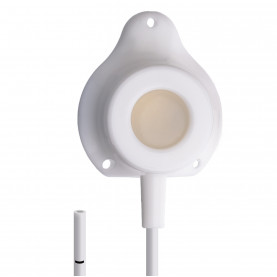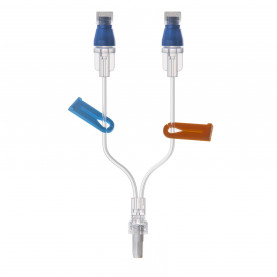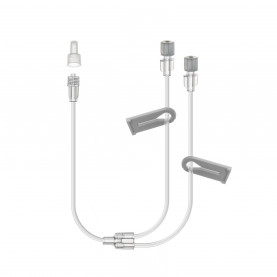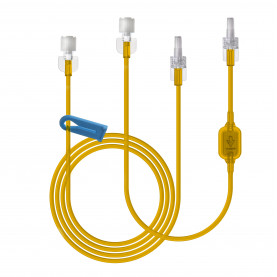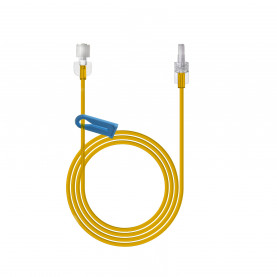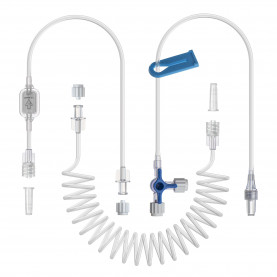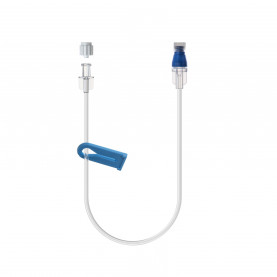MedTech Startup Aidoc’s AI-Powered Algorithms Disrupt Radiology
It took just two years for Aidoc, a company providing artificial intelligence solutions for radiologists, to disrupt the medical imaging field with its unique deep learning algorithms that pick up acute abnormalities in the body.
Aidoc analyzes mounds of medical images – 280,000 scans and counting, according to the company’s real-time tracker, saving 3,274,409 minutes of human work, since its launch in early 2016. The company says its solutions help to significantly improve the radiology workflow and enhance the diagnostic process, thus saving lives.
And the Tel Aviv-based company is just getting started.
“We decided to focus our solution on acute pathologies where quality of care and time are of the essence,” Aidoc’s co-founder and CEO Elad Walach said in a press statement.
“Radiologists are challenged with responding to large numbers of acute cases in a timely fashion. The key, we believe, is to be comprehensive. If you really want to impact the daily practice you have to cover a significant portion of the radiologist’s workflow. Our solution can sift through the whole worklist in the background and highlight cases that require immediate attention, improving radiologist’s response time,” he said.
The young founders at Aidoc — Walach, Michael Braginsky, co-founder and CTO, and Guy Reiner, co-founder and VP R&D — are all computer and math whizzes, veterans of Talpiot, the Israeli military’s elite training program, and have been specializing in artificial intelligence technologies for nearly a decade (each).
Together with Dr. Gal Yaniv, also a Talpiot veteran and the chief medical officer of the company, the Aidoc founders, all in their early 30s, were able to pinpoint a healthcare niche in need of a remedy to its data clot. Aidoc’s solution analyzes medical images directly after the patient is scanned and notifies the radiologist of cases with suspected findings to assist with prioritization of time-sensitive and potentially life-threatening cases.
While hardly the only artificial intelligence platform aiming at the healthcare field, Aidoc’s solutions have garnered accolades quickly. Its brain solution that works with radiologists to flag acute intracranial hemorrhage (ICH) cases in head CTs got an FDA nod in August. And earlier this month, the young startup was named one of TIME magazine’s 50 Genius Companies of 2018.
“It’s an amazing recognition,” Ariella Shoham, VP of marketing at Aidoc, tells NoCamels. “We really feel radiology needs [disrupting]. Radiology is a behind-the-scenes part of healthcare that now received the limelight. It gave us a vote of confidence that we’re doing the right thing.”
“It is exciting to see that radiology is back in the front line of med-tech. We are more dedicated than ever to continue our part in working towards addressing growing challenges in radiology, and in developing innovative solutions to solve some of the biggest data and imaging challenges of our generation,” Walach wrote on the company’s blog, upon news that Aidoc was included in the TIME list.
Radiology has always been a medical specialty with unique technical challenges. The average hospital generates 50 petabytes of data annually, including clinical notes, lab tests, medical images, and more, according to a press statement by the European Society of Radiology (ESR).
Yet less than three percent of the data is used, reports ESR. Artificial intelligence, when used right, has the potential to make sense of the data and help improve provider efficiency, increase diagnostic accuracy, personalize treatment, enable remote and predictive maintenance, and perhaps most importantly, improve patient experience.
“AI can replace the mundane activities that are very time-consuming [in the radiology field],” says Shoham. “We need to help radiologists become more efficient, more accurate. Our machine learning can do things radiologists don’t need to do. They can use us to help themselves.”
While concerns amongst radiologists that they’re being replaced by machines do exist, healthcare’s future is digital. In fact, AI in healthcare is exploding and expected to revolutionize efficiency, quality, access and costs in the industry.
The AI healthcare market is expected to reach a whopping $6.6 billion by 2021, according to an Accenture management consulting report.
“This is not about whether AI is a friend or foe or whether AI will replace radiologists. It’s not either or in terms of machines or radiologists. Machines are not going to replace radiologists. If you look at the trends in healthcare… radiologists who embrace AI are going to be a lot more efficient, better at their jobs than radiologists who do not,” says Shoham.
The International Day of Radiology, coming up on November 8, marks the anniversary of Wilhelm Conrad Röntgen’s discovery of X-rays. This 1895 discovery to all intents and purposes laid the foundation for radiology. Today, some 75 percent of all patient care involves radiology and the amount of imaging is skyrocketing. Artificial intelligence is the augmentation tool needed to help radiologists increase efficiency and expedite patient care.
“Seeing the software in action emphasized the key aspects an AI solution needs to possess to have an impact on the radiologist day to day – seamless integration into the workflow and broad applicability,” Dr. Barry D. Pressman, MD, Chairman of Imaging at Cedars-Sinai Medical Center and former president of ACR (American College of Radiology), said about Aidoc’s FDA-approved brain solution [WHERE?]. “With the evidence I’ve seen – in the not so distant future, it will almost be unthinkable to practice radiology without the assistance of solutions like Aidoc.”
There are more than 900 startups in Israel today using or developing AI technologies — and its subsets such as machine learning, deep learning, computer vision, natural language processing, robotics, and speech recognition– as a core part of their solutions for areas such as retail, security, marketing, banking and healthcare, according to a Forbes report.
Specifically in the healthcare sector, there are companies like FDA-approved Zebra Medical, which uses high-performance algorithms that automatically detect medical conditions; US-Israeli company Viz.ai, also FDA-approved, which uses artificial intelligence to analyze CT scans and assist doctors in treating strokes; and Clew Medical, which employs an analytics platform for predicting life-threatening complications in intensive care in early stages.
“What makes AI really hot now, is that there are hundreds of new markets and use cases that have recently been opened for disruption due to the advances in AI and data science,” Shuly Galili, co-founding partner at UpWest Labs, told Forbes last month. “Most Israeli entrepreneurs have strong military background which means that on average they have more hands-on experience working with AI, image processing, data science, etc. than entrepreneurs from other countries.”
Indeed, for new-kid-on-the-block, Aidoc, the founders’ vast Israeli military experience helped secure 50 medical centers worldwide to install its solutions. They are the latest, in a long line of Israeli entrepreneurs, to take groundbreaking military technologies and apply it for the greater good.
“Quite a few of the medical centers [now using Aidoc’s software] appreciate the Israeli technology. They appreciate what comes out of the Israeli military. That’s how we got the ball rolling,” says Shoham, noting how the young company was able to persuade some of the US’s top radiology departments to utilize their deep learning algorithms to assist in workflow optimization solutions.
The company’s software can be applied to full-body imaging, and outside the US, has been commercialized since December 2017.
“It is our goal to support radiologists with AI tools that give actual value in their day-to-day, and we are so happy to be able to finally release a product that can really impact human lives,” Walach writes on the company’s blog. “We became the first company to be federally approved to empower radiologists to triage patients with AI.
This is a breakthrough achievement because it symbolizes the beginning of a new era in AI for radiologists,” he said.

